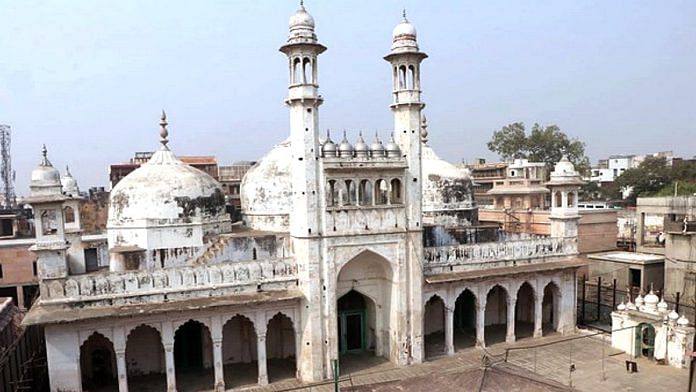New Delhi: A Varanasi court hearing the Gyanvapi dispute Tuesday has allowed Hindu plaintiffs in the case to conduct prayer rituals inside one of the sealed basements in the mosque complex.
The four-page interim order passed by district judge Ajay Krishna Vishvesha directs Varanasi’s district magistrate to make appropriate arrangements for these prayers within seven days. The court’s order came on a suit filed by the head priest of Acharya Ved Vyas Peeth temple, Shailendra Kumar Pathak.
The suit was filed last year, seeking permission to worship Shringar Gauri and other visible and invisible deities in the cellar of Gyanvapi mosque. On 17 January, the court had appointed a district magistrate of Varanasi as receiver of the southern cellar of Gyanvapi mosque in this suit. The magistrate was asked to keep the disputed property safe under his custody.
In that order, seen by ThePrint, the Varanasi court noted that on a hereditary basis, ‘Pujari shree Vyas ji’ was in control of the disputed premises even during the British period, but had been stopped from conducting religious ceremonies in the basement in December 1993. This was on direction from the state government.
In response, the mosque committee told the court that nobody from the Vyas family had ever conducted any prayers inside the cellar, and therefore, the question of them being stopped in December 1993 does not arise.
However, the court has allowed prayers inside the sealed basement for now. The order also noted that the respondents, the Muslim side, had filed an application under Order 7 Rule 11 of the Code of Civil Procedure, which lists the conditions under which a plaint or a plea can be rejected by the court.
The court has now asked the parties to appear before the court on 8 February, and till then, the plaintiffs can file their objections to the application. Archaeological Survey of India (ASI) has concluded in its survey report that the western wall of the Gyanvapi mosque in Varanasi is the “remaining part of a pre-existing Hindu temple”.
Also read: Legal ambiguity in Places of Worship Act & ASI report to boost Hindu side, ball now in SC’s court



